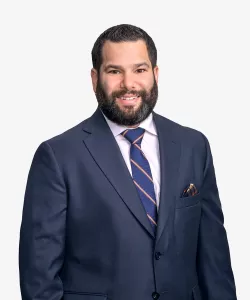Claims Narrowed in Jack Nicklaus Non-Competition Case Over IP Sale
On April 12, 2023, a Manhattan judge in the lawsuit regarding the sale of golf legend Jack Nicklaus’s intellectual property portfolio narrowed the claims against Nicklaus.
In 2007, Nicklaus sold his intellectual property portfolio and course design services, to real estate developer Howard Milstein’s Nicklaus Companies LLC, for $145 million. In September 2022, Nicklaus Companies sued Nicklaus, alleging that Nicklaus violated the non-competition, good faith, and fair dealing provisions of the sale agreement with Nicklaus Companies.
Nicklaus Companies was able to secure a preliminary injunction in November against Nicklaus after alleging that Nicklaus negotiated, without Nicklaus Companies’ knowledge, with the LIV Golf tour, even though the Nicklaus Companies have a long-term partnership with the PGA Tour. The complaint also alleged that Nicklaus agreed to design a golf course on the same Bahamian Island that Nicklaus Companies was building a different course. Nicklaus retired from Nicklaus Companies in 2017 and argued, in response to the lawsuit, that the noncompetition provisions of his prior employment agreement expired five years after his retirement in 2022.
New York Supreme Court Justice Joel M. Cohen ruled that Nicklaus Companies’ complaint tried to “shoehorn into the other parts of the transaction competitive restrictions that are spoken to much more specifically in the employment agreement and noncompetition agreement.” In particular, the claims regarding good faith and fair dealing (“gap-filler,” as described by the Justice) were dismissed, since they were meant to capture disputes not negotiated between the parties in the employment agreement and non-competition agreement. Justice Cohen also dismissed Nicklaus Companies’ tortious interference claims since Nicklaus was an integral part of the sale of the intellectual property — making such a claim inapplicable, and Justice Cohen similarly dismissed Nicklaus Companies’ breach of fiduciary duty claims.
Further, Justice Cohen ruled that the non-competition claims, in contrast, are clearly dealt with in the underlying transaction documents and “ma[p] out what Mr. Nicklaus could and couldn’t do and for how long.” Thus, Justice Cohen ruled that the non-competition claim was a factual issue, to be addressed in discovery, and therefore, was not dismissed. According to reports, Nicklaus will try to get the preliminary injunction in the case lifted at a June hearing, so he will be able to enter commercial endorsement and licensing deals, while the litigation proceeds.
Our Sports group will continue to monitor developments in this interesting intellectual property licensing dispute. Should you have questions, feel free to contact the authors or your ArentFox Schiff counsel.
Contacts
- Related Industries

